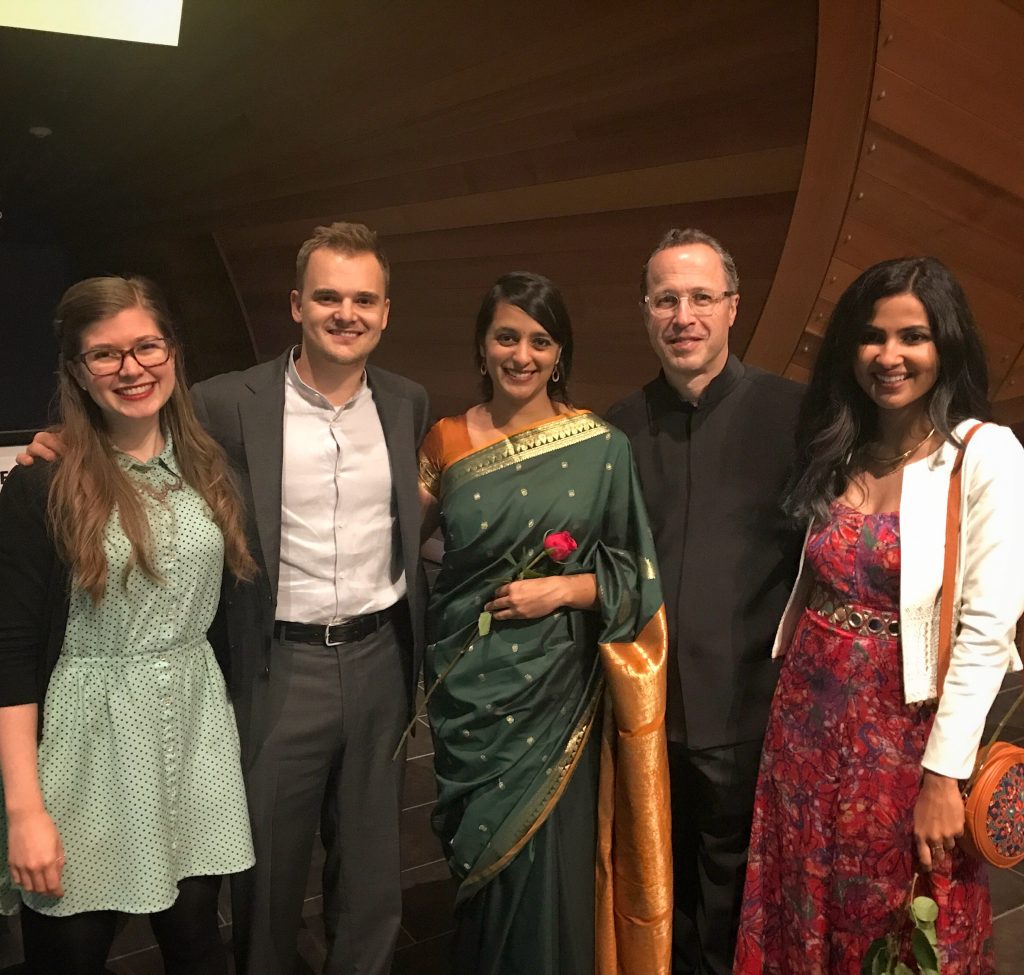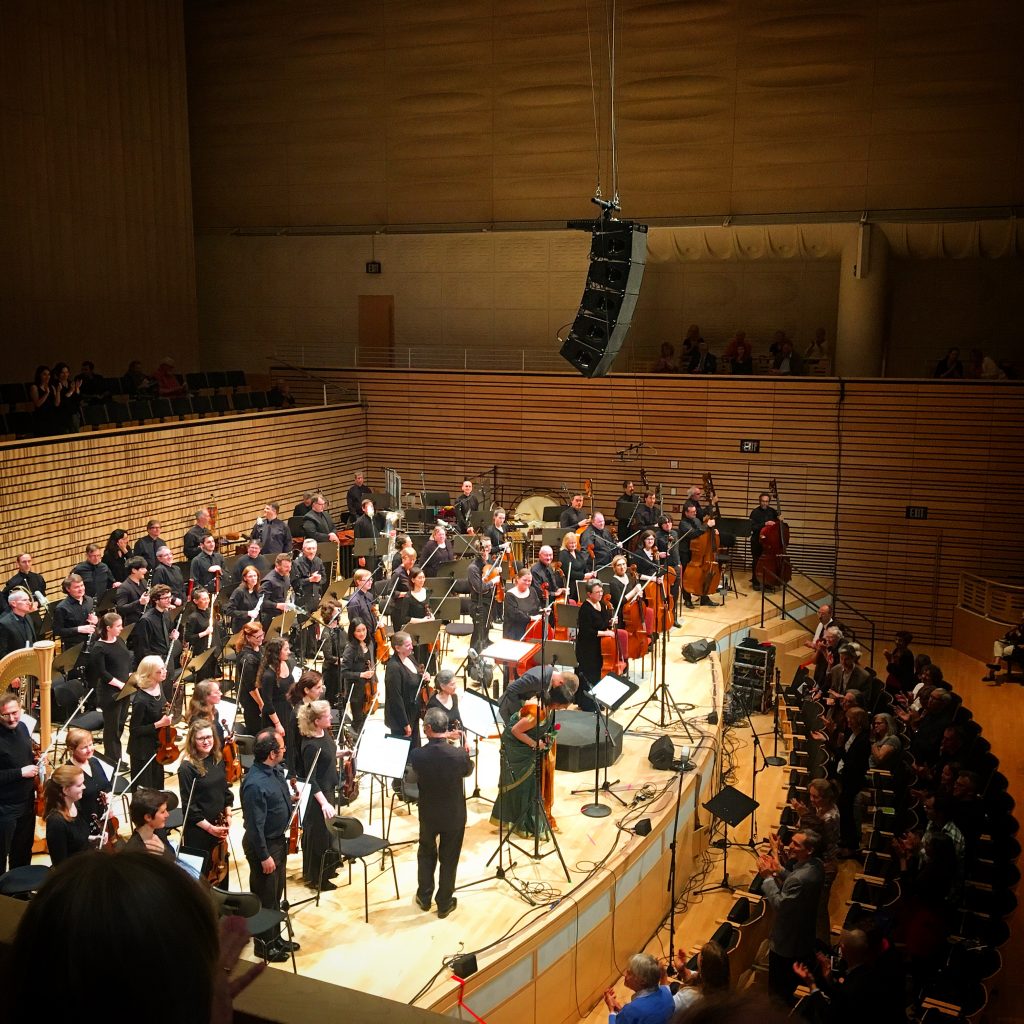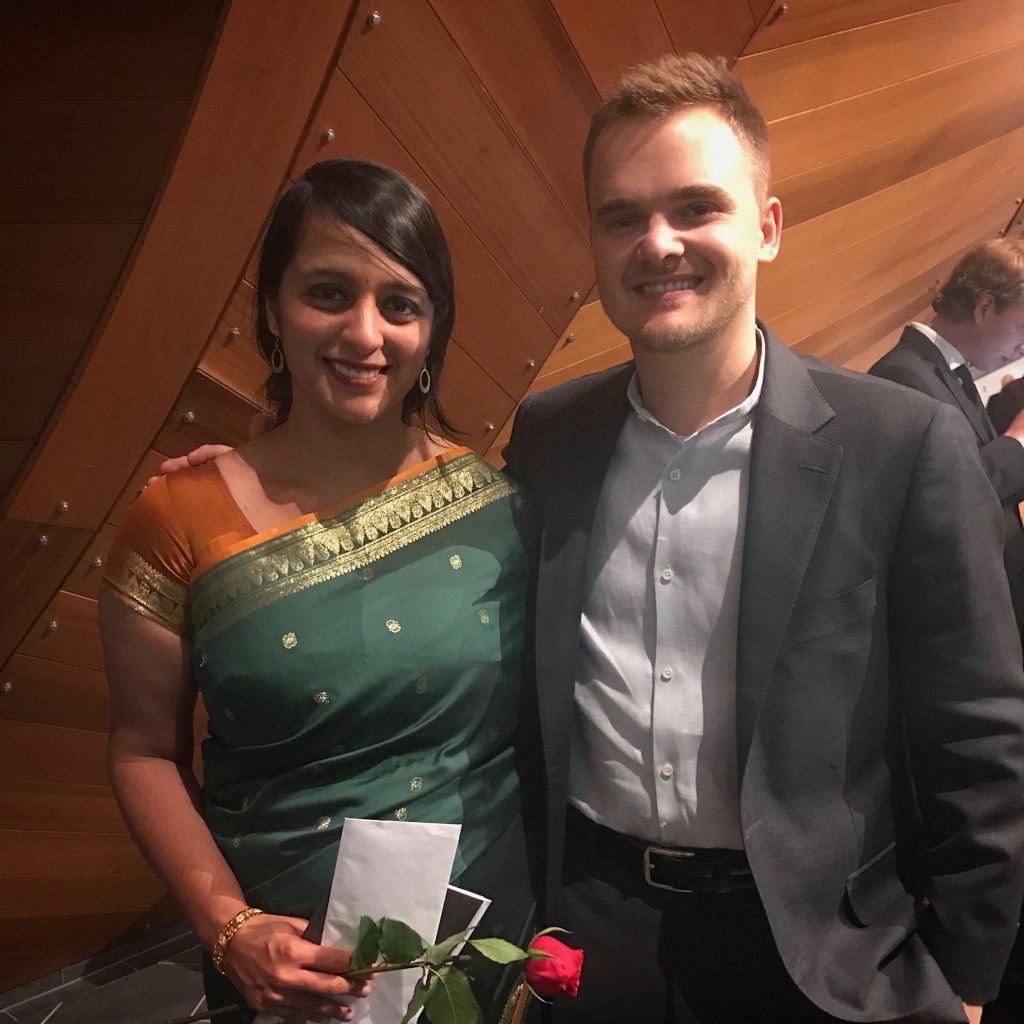


Ctr: premier performance at EMPAC with Albany Symphony
R: Reena and Shankar
Program Notes
The first time I saw one of Shankar Tucker’s videos on YouTube, almost five years ago, I knew I wanted to write him this concerto. I didn’t know him back then: I was just one of his millions of fans from around the world, who was so deeply moved to see a musician who blended these two traditions with such incredible imagination.
Five years after I first saw that video, this project finally found a home with Albany Symphony.
Shankar is a unique performer: he has trained extensively in both Western and Hindustani classical music – both at New England Conservatory in Boston, and with a great master of Hindustani music, Hariprasad Chaurasia in India. In writing this piece, I found that so many doors were open to me that had never been open at the same time: I could notate a simple melody that he could then ornament or vary. I could ask him to improvise in a raag. I could ask him to read notation off a page, in changing time signatures. I could write in a complex western form because he could easily follow what was on the page. There are very few musicians in the world who are able to do all of these things, and even fewer who are able to do them with the grace, fluidity and soul of Shankar Tucker.
Hindustani music is an aural tradition: the nuance of a phrase is picked up through call and response, by hearing and repeating. In both movements of this concerto, the melodies that start in the clarinet eventually find their way into the orchestra. Many of these melodies came from Shankar’s own improvisations — we worked together on this piece at the conceptual level and found material we both loved. The aural transfer of these melodies to the western musicians is embedded in the piece itself, and the exchange of musical cultures is taking place in real time, before your ears.
Orchestra Breakdown
woodwinds: 3.3.3.3 (dbl. picc, English Horn, Bass Clarinet)
brass: 4.2.1.1
harp
timp + 2 perc
strings
Recording
Due to union regulations, we are unable to release the original orchestra recording of this work. If you are considering programming it, and would like to hear it, please contact us.
Additionally, here is a beautiful new performance of the Clarinet Concerto with a piano reduction :
Anoushka Divekar, clarinet; Mireia Frutos Fernandez, piano
Also, you can hear the slow movement of the Clarinet Concerto, Saans, reworked for piano trio.
Special Performance Requirements
The solo clarinet in this piece is a combination of notated music and space to improvise in specific Hindustani raags. This piece was written for Shankar Tucker, a clarinetist who has trained extensively as both a Western classical clarinetist and a Hindustani classical clarinetist.
To make this piece accessible to Western classical clarinetists, a version that notates Tucker’s improvisations is available (see the recording above for this version – it is identical to the version Shankar played, but the improvisations have been notated out).
For clarinetists with jazz/improvisation background, the original version is certainly accessible, as long as your reading skills and experience working in classical settings are both strong.
For Hindustani musicians without any Western music experience, this piece might be quite difficult to perform, as it does require the ability to read Western notation, especially in the process of rehearsing with an orchestra. However, with an intermediary or a Western musician to aid in preparation and rehearsal, it is certainly possible.
Premiere/Performances
This piece was commissioned by Albany Symphony Orchestra. It was premiered on June 3, 2017 in Troy, NY. Featuring the soloist Shankar Tucker.
Press/Reviews
“Reena Esmail, one of this season’s resident composers, returned with a Clarinet Concerto featuring the soloist Shankar Tucker. Both movements featured long and rippling melodies beautifully performed in a legato voice by the soloist who was amplified.”
Albany Times Union
Radio interview with Reena about Clarinet Concerto – SoundCloud
